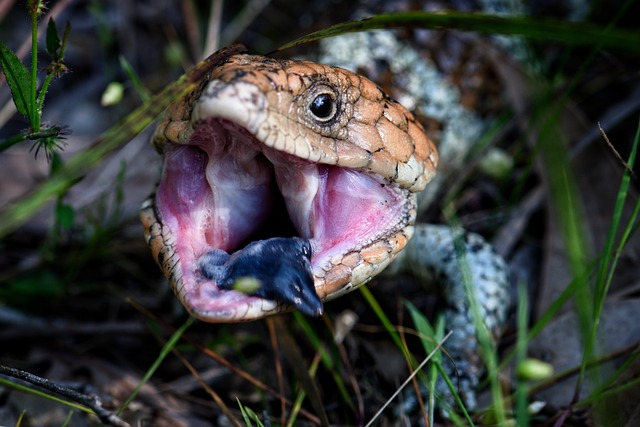If you’re considering adding a shingle-back lizard to your family, there are some things to consider before committing. Of course, one of those is cost. Understanding the financial implications of caring for such an animal is essential to provide it with the best possible care. So let’s explore how much a shingle back lizard costs and why it’s important to budget accordingly when owning one.
How much does a shingle-back lizard cost?
A shingle-back lizard, also known as a sleepy lizard, is among the market’s most affordable exotic reptilian pets.
Generally speaking, these unique little creatures cost around $50 to USD 100.
With many years of proper care, such lizards can live for over 20 years. However, as with any reptile purchase, it’s essential to ensure that you have researched the proper housing and nutrition that this particular species requires – a healthy diet and average temperature are of utmost importance for optimal health.
Before making this commitment, reach out to a qualified and trusted vet who can ensure you’re providing what is necessary for their overall well-being.
Initial Cost and Needs
The initial cost of a shingle-back lizard can vary depending on where you buy it from and its size. Generally, they can range anywhere from $50-USD 100. However, this cost only covers the purchase price and does not include any additional needs for the lizard to be healthy and thrive in their new home.
Additional costs
In terms of additional needs, you should factor in housing, food, and lighting equipment costs.
A good-sized enclosure should provide enough space for your shingle back lizard to move around freely, so anticipate spending at least $200 on that alone – potentially more if you opt for something custom-built or higher-end materials.
Depending on what type of food you buy for your pet – whether it is live insects or pre-packaged foods – prices will vary significantly between the two options but expect to spend at least $50 per month just on food (live insects tend to be cheaper).
Lastly, lighting equipment should be considered when budgeting since these lizards require UVA/UVB light exposure to remain healthy; most bulbs can range from $20-$60 each, with replacement bulbs costing around the same amount every six months or so.
Ongoing Care & Vet Visits
It is also important to consider ongoing care when determining how much a shingle back lizard costs; Although, at the same time, these creatures do not require as much attention as other pets like cats or dogs; they still need regular vet checkups and supplies throughout their lifetime to stay healthy.
Veterinarian visits can add up over time since most vets charge anywhere from $50-$150 per visit depending on the services provided; think about budgeting several hundred dollars annually just for vet visits alone.
Additionally, cleaning supplies are essential for keeping your pet’s habitat clean which typically ranges between $5-$15 per item depending on what type of cleaner you choose (soaps versus disinfectants).
Lastly, don’t forget bedding materials like substrate, which generally run around $20-$30 per bag – depending on its size – that should last several months if changed regularly.
Conclusion
When it comes down to it, caring for a shingle-back lizard can initially cost quite a bit and even more over time if you want your pet to remain healthy and happy.
Potential owners must understand all the financial implications before taking on such a responsibility; however, with proper research and budgeting, anyone can make sure their pet receives all necessary care without breaking the bank.
Don’t let financial concerns prevent someone from providing love and care for their new pet – start saving today.





